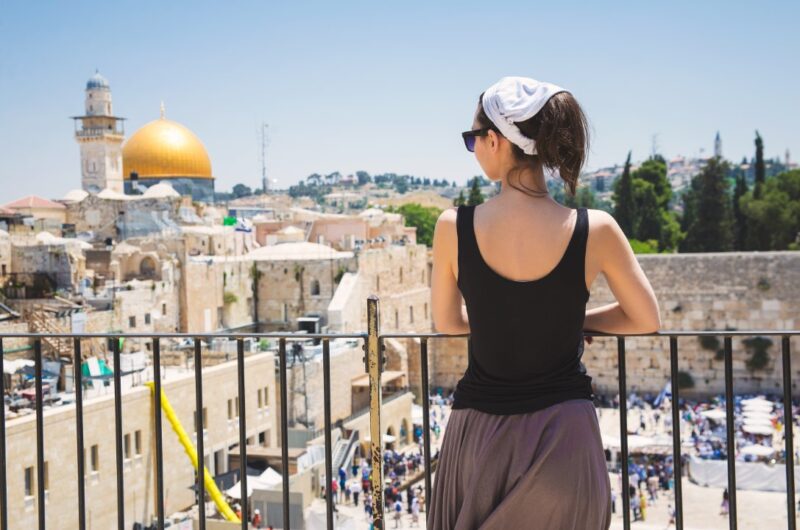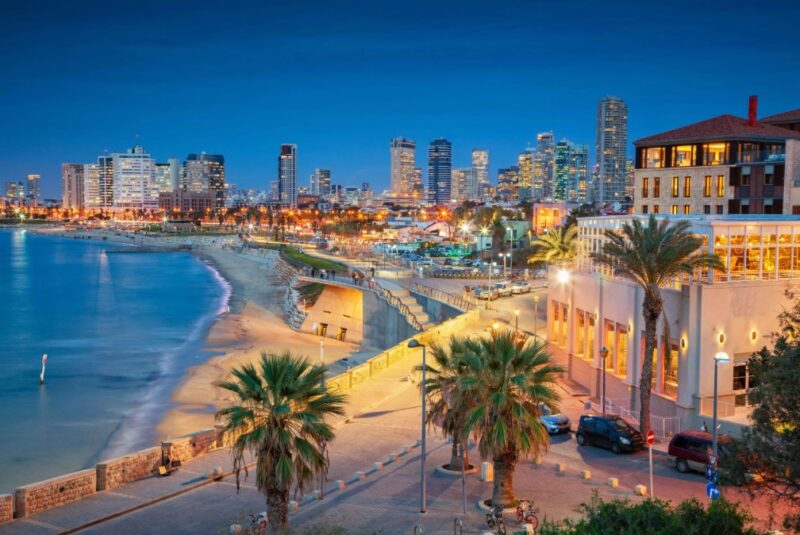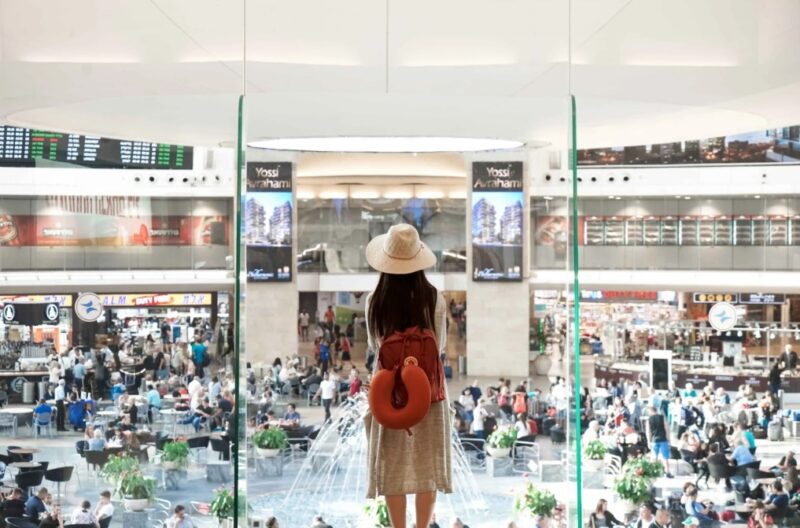This isn’t an article I ever thought I’d need to write. I’ve always believed travel should be about discovery, meeting people, and expanding horizons, not calculating risks to your personal safety every time you step outside your hotel.
But here we are. Israel in 2025 is a destination that draws both fascination and hesitation. If, like me, you’re captivated by its history, culture, and landscapes but feel a gnawing uncertainty about what’s waiting on the ground, then this is for you.
I’ve dug deep, talked to friends in Israel, scoured official reports, and watched far more news than is probably healthy. This is my honest take.
The Reality on the Ground ─ Security in Israel Today
When you picture Israel, your mind probably jumps between stunning images of the Dead Sea, Jerusalem’s holy sites, and the buzzing nightlife of Tel Aviv, and then news flashes of air raid sirens, rocket attacks, and tense military operations. The truth? Both images are accurate.
In 2025, the Israel-Palestine conflict continues to shape the safety landscape. Tensions remain high, with periodic escalations that lead to rocket fire, military strikes, and civil unrest. I’ve spoken with friends living in Tel Aviv and Haifa who say that while daily life does go on, the tension is always there, humming just beneath the surface.
The security infrastructure is impressive, with bomb shelters, sirens, and rapid-response emergency services, but these systems are in place for a reason.
You could walk along Rothschild Boulevard, enjoying your coffee in peace one moment, and within minutes, be heading for shelter if the situation changes. That unpredictability is what makes travel planning so tricky this year.

Real-time Monitoring Tools Every Traveler Should Use
Gone are the days when you could plan a trip based on a guidebook published last year. In 2025, staying safe in Israel means staying informed, day by day, even hour by hour. One resource I’ve found surprisingly helpful is Israel Live Stream services. These give you a direct view into what’s happening across cities and regions, no filtering, no delay, just real life as it unfolds.
I’ve used these streams to gauge how calm or tense specific areas feel before booking accommodations or mapping routes. Paired with official apps like Israel’s Home Front Command (which sends real-time alerts) and government travel advisories, they’ve helped me plan smarter.
It’s not about scaring yourself, it’s about making informed decisions. Watching live footage, even for ten minutes, tells you more than reading a dozen articles.
Which Regions Are More Dangerous, and Which Feel Safer
Israel is small, but the difference in safety between regions can be massive. Here’s what I’ve pieced together through research, reports, and conversations with locals:
High-risk Zones
Areas near Gaza, such as Sderot or Ashkelon, are subject to frequent rocket attacks and military activity. Likewise, the northern border near Lebanon, especially around Metula, sees heightened tension and occasional clashes. These are places I personally wouldn’t risk visiting right now unless absolutely necessary.
Moderate-risk Zones
Jerusalem is beautiful, complex, and sensitive. Security is everywhere, and while that offers protection, it also reflects the risks. Flashpoints around Temple Mount (Haram al-Sharif) can escalate fast. Tel Aviv generally enjoys a calmer atmosphere, but no city is immune in times of escalation.

Lower-risk Zones
Resort areas like Eilat, far south on the Red Sea, are typically quieter. The Negev desert regions see far fewer incidents. But even in these places, you’re still in a country where regional conflict can change conditions quickly.
If you’re thinking about where to go, map it out carefully. Be realistic about how far you are from risky zones, and don’t rely on assumptions.
How Locals Adapt, and What Travelers Can Learn From Them
Here’s something that struck me when I spoke with friends living in Israel: Resilience isn’t just a word here. It’s a lifestyle. People live with uncertainty, but don’t let it rule their lives. They know where the nearest shelter is, they respond quickly to alerts, and they keep going.
A Tel Aviv friend of mine described hearing sirens during dinner, calmly heading for shelter, waiting it out, and then going back to finish the meal. That kind of normalcy in the face of danger is hard to grasp if you’re visiting for the first time. But travelers need to learn from this. If you go, you can’t afford to freeze in confusion if a siren sounds. You need to know what to do before it happens.
Tips for Staying Safe if You Decide to Go
If, after weighing everything, you still choose to visit, preparation is your best tool. I’ve compiled a list based on my research and conversations with those who know the situation firsthand:
- Stay flexible with your plans. Don’t lock yourself into non-refundable hotels or tours. Situations change fast.
- Book places with built-in safety features. Hotels with secure rooms or shelters aren’t just for locals; they’re for you too.
- Learn emergency procedures. Know what to do during an alert, where to go, and how to act fast.
- Carry essential supplies. Power bank, flashlight, and some emergency snacks or water, these are small things that matter in a crisis.
- Avoid high-risk areas entirely. No photo or experience is worth gambling with your safety.
Also, consider travel insurance that covers conflict-related disruptions; many standard policies don’t.

Why Official Advisories Should Guide Your Decision
Every major government issues travel advisories for Israel, and they’re updated frequently in response to changing conditions. I know it’s tempting to skim these and think, “I’ll be fine.” Don’t. Read them fully. They offer specific details, including which areas to avoid, curfews, and instructions for emergencies.
And remember: if things escalate while you’re there, you may have limited options for leaving quickly. That’s a reality I’ve had to consider seriously in my own planning.
Final thoughts
So, is it safe to travel to Israel in 2025? The honest answer is: there is no blanket yes or no. It depends on where you go, when you go, and how prepared you are. Some areas are relatively calm, but the risk can never be ruled out entirely. If you’re drawn to visit this incredible land, do it with open eyes and a solid plan. Stay informed!

